Piece originally appeared in the Sept. 2015 BeerPaperLA.
Ten weeks ago, Jim Mellem walked through The Bruery’s doors. A/C blowing his almost Lyle Lovett-like hair to the side, he punched the clock on a new job with a million things to do. Ten weeks later, the old brewhouse is out, a shiny-new GEA system is installed, and the Bruery Terreux sits a pellicle away from going full force. Leaving a 12-year position at one of America’s most-respected breweries to work in Orange County couldn’t have been easy. I got a chance to check in with him late August and chat about his transition.
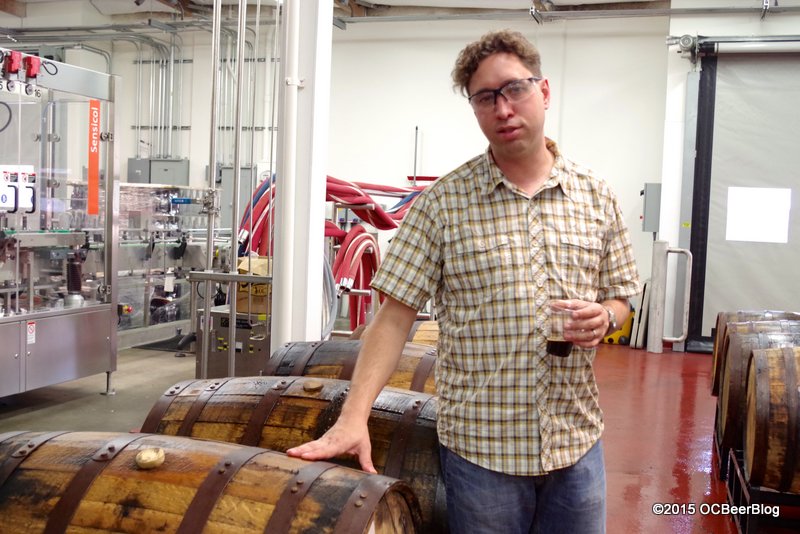
Sharing Black Tuesday 2015 out of the brite tank, Jim Mellem
Everyone always remembers their first Bruery beer, what was yours? Tradewinds Tripel. Beautiful beer.
How different are things at The Bruery compared to Sierra Nevada?
The resources here are a little bit different, in a lot of ways it’s a lot more fun. We get to roll up our sleeves. Patrick is really big on the people aspect of brewing, which is nice. It’s a lot more manual at the Bruery. One similarity is the pilot system at Sierra Nevada is similar to our production brewhouse. At Sierra, it’s more for fun, over here, it’s what pays the bills.
How much are you going to miss dry hopping?
I was in charge of the cellar in Chico and that was like 60% of my job! I’d be organizing torpedos, dry hops, and managing the guys. I can safely move on from brewing IPA’s in my life. I love drinking them though. Now I’m getting more into ‘what kind of spices can we add to the whirlpool’. With our recent collab with Jester King, I had to organize the guys to get zest off of 400 pounds of limes; every week is something totally different.
With the unique operational requirements behind some of The Bruery’s beers, are there any techniques you’ve changed or plan on changing?
With Autumn Maple, we’ve moved to yam purée instead of hand processing them. We also bought a pump to add them directly into the kettle (ed: they previously used a forklift). Anyway, it’s a lot easier than hand-roasting yams. We still split vanilla beans individually and have to get the ingredients sack together for whirlpool, so it’s still a major operation in some respects.
You mentioned you came from the cellar side of things at Sierra Nevada, is there any knowledge to impart coming from years of bottle/can conditioning Pale Ale and other beers?
Sierra is probably one of the few breweries in the world that has the ability to take beer that’s 32 degrees and warm it back up to 60 at packaging/filtration. At Terreux, we’re pushing everything to be bottle conditioned as we find that it adds that je ne sais quoi. Right now, we take the bottles and stick them in a warm warehouse for a month plus, but if you can give that a bit of a jump start by getting the beer warm, then bottling, we’d be ahead of the game. The question is how can we do that from an energy standpoint, using existing equipment and not trying to sink the Bismarck in cost.
Maybe convert the Jazzersize building a few doors down into a Bikram Yoga/Bottle Conditioning room?
I definitely have some cool ideas…it’s really interesting at Sierra though, as we will bottle condition with house yeast, with Cal Ale yeast, and we’d also do it with Brett. So there’s a lot more variation on bottle conditioning speed, what types of esters you’re producing, and what you’re trying to get in the bottle. It might be something that will help mop up the rougher flavors after barrel aging, diacetyl, making sure you’re getting a really great product out to the consumer, so we’re definitely trying to employ some of these options. Terreux is still very much a work in progress, in regards to how we’re going to finish those beers.
Sierra Nevada is built with efficiency and environment in mind. Will you be looking into any projects to do the same at the Bruery?
I think it’s a greater awareness, but the new brewhouse offers some benefit. The mash tun has rakes now, so we can get more water out which means we’re sparging less and using less water per barrel. We want to have a knowledge of how to count and quantify things first, then we can figure out how to improve. We’ve reset the bar with the new brewhouse. We’ll have to get smarter with transporting wort between buildings. We’ve also done some things different how we clean the bottle filler to save water. We’re doing a lot of risky beers here, and with that, there’s always going to be a lot more water use because you’re always going to have to clean, then clean again, and again.
Is manpower shared between Terreux and Bruery?
It’s really interesting. There’s two different teams within the different wort stream. Myself and Andrew Bell are the only two guys that bounce back and forth between locations. We do have pilot fermenters over there, so we’ll funk stuff up and see how it goes. It’s cool that it gives people more ownership of the projects.
The split brewhouse with The Bruery and Terreux was meant to primarily address quality concerns, is there anything else The Bruery is doing to enhance beer quality?
We have a nice quality department here. For a brewery of this size to have three people that are 100% devoted to quality is pretty damned good. Not too many breweries of this size can say that. Our next frontier will be dialing in package quality.
Were you ever part of the Ovila Belgian-style beers Sierra Nevada brewed, and if so, did it drive some of your interest down here?
It’s weird, when I interviewed, I asked, “you’re a Belgian-style brewery right?”, and they were like…nah, no not really…we sort of identify with that; but we more identify with the individuality of that. That’s ultimately what drove me to be here. I worked on the first five Ovilas; that was cool because we got to figure out what yeast strains to use and how to bottle condition. It was still very experimental at such a large phase. I think what really drove me here was that I have always been a fan of The Bruery’s beers, and being impressed that something this small can produce beers this high in quality, keep it interesting and keep it exciting. They take huge risks, which I kind of like.
Do you appreciate any other local breweries?
I go to Noble Ale Works a lot. I describe them more as my neighborhood pub. You look at the stuff they’re doing with hops with the single hop variety beers. It’s great! I can go there and get an idea of what 100% Mosaic tastes like. I’m like, thanks man, I appreciate that.
SN does two beers in open fermenters: Kellerweiss and Bigfoot. Would you ever try to convince Patrick to install something like that?
The cool thing about this place is nothing is off the table. If you look at the beers they’ve made over the years, truly nothing is off the table. We’re looking at a 2017 expansion project. I know with Wicked Weed, they’ve installed a nice 30 or 60 barrel open fermenter. The bigger question is ‘what are you getting off of it?’ You’re getting a nice non-pressurized fermentation. For the Kellerweiss yeast, I can definitely say it does make a difference. For Bigfoot, do you really pick up that up in the ester profile? Maybe not so much. As long as I don’t have to clean it, I’d be happy installing one. I actually twisted my knee getting in and out of one, so my days getting in and out of open fermenters might be a job for the younger guys.
How is Orange County treating you thus far?
I still get lost going to the grocery store! Haha! I’m still GPS dependent getting around here.
Chico’s beer scene is run by Sierra Nevada. Asheville not so much. What was it like for SN to move into a thriving beer community?
It’s really weird, one gripe about Chico was trying to hire people, there’s no big beer culture there. Living in Asheville was that we have people making different beers down the road and so we’d be able to try new beers and be able to chat with the brewers, asking how they made it, then we’d get ideas of our own, and it would foster and grow. And for me, seeing what Wicked Weed was doing, I was like, why don’t I go work for a brewery that does this? The cool thing is about those guys is, people see what they’re doing and think, “I should be raising the bar too.” There’s this step-ladder affect.
Like this:
Like Loading...
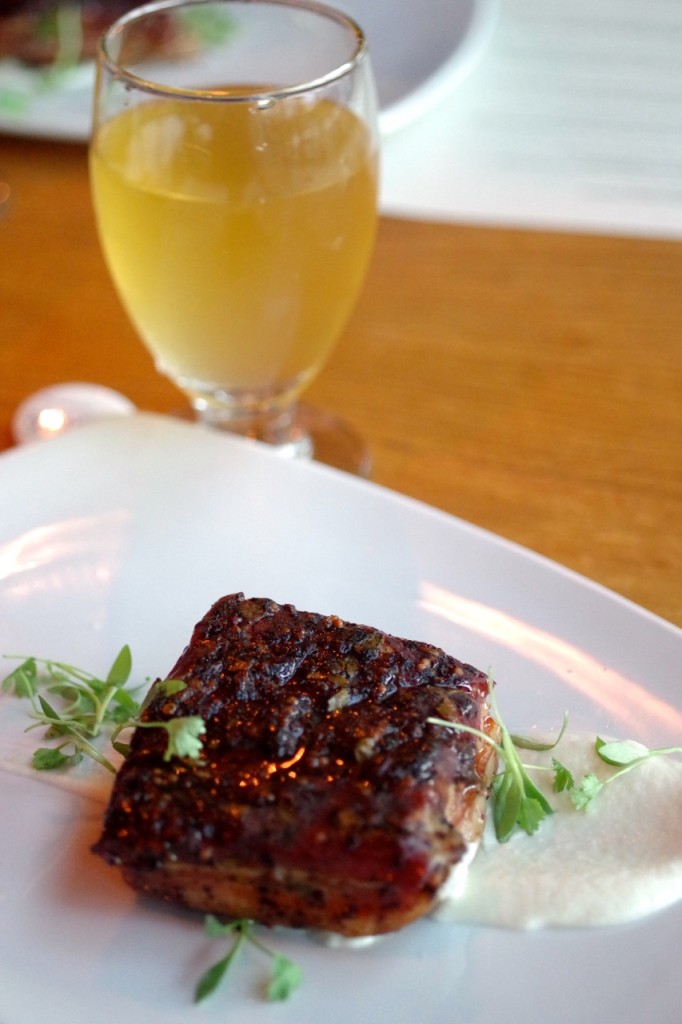
 Course 2: Sourrento Mussels – A beer that debuted at the second Firkfest, Sourrento is a sour ale inspired by the lemon flavored spirit, Limoncello. The broth on this dish has a nice rauchy-bacon quality, “I want a glass of it,” says my table-mate Anne Marie of OCWeekly fame. The black mussel is plump and ready, topped with 70’s chili-thread bush.
Course 2: Sourrento Mussels – A beer that debuted at the second Firkfest, Sourrento is a sour ale inspired by the lemon flavored spirit, Limoncello. The broth on this dish has a nice rauchy-bacon quality, “I want a glass of it,” says my table-mate Anne Marie of OCWeekly fame. The black mussel is plump and ready, topped with 70’s chili-thread bush. COURSE 4: Oh SHIT.
COURSE 4: Oh SHIT. Dessert Means You Survived: Blackberry cheesecake, Thai basil, bourbon sweetened currants and sweetened cream sauce paired with Cinnamonk was actually the best pairing of the night. But, wow. Full.
Dessert Means You Survived: Blackberry cheesecake, Thai basil, bourbon sweetened currants and sweetened cream sauce paired with Cinnamonk was actually the best pairing of the night. But, wow. Full.


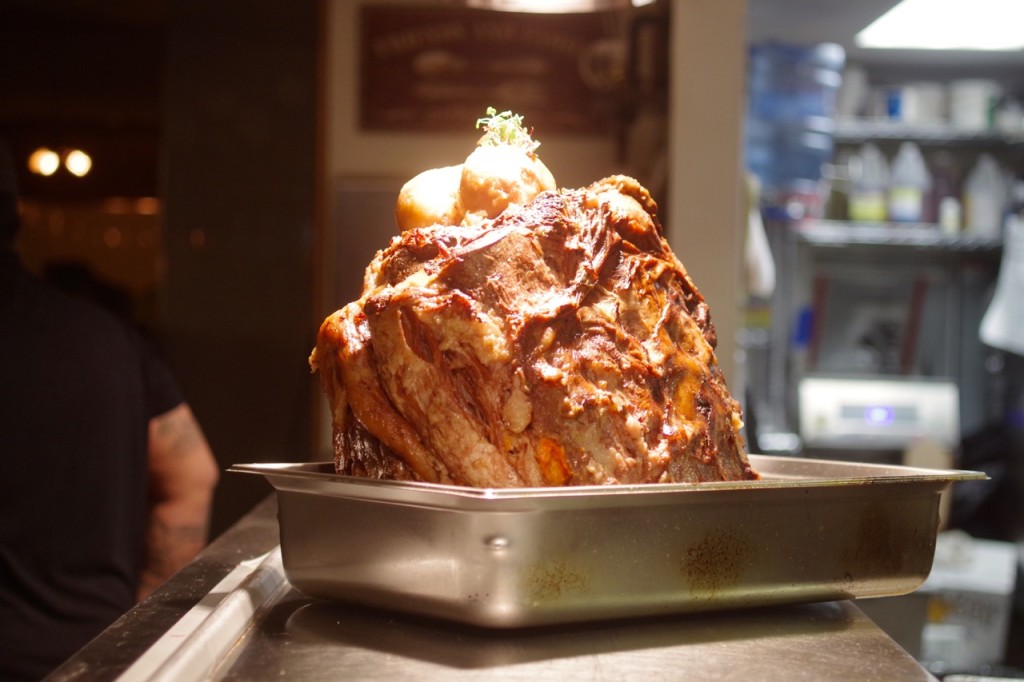



























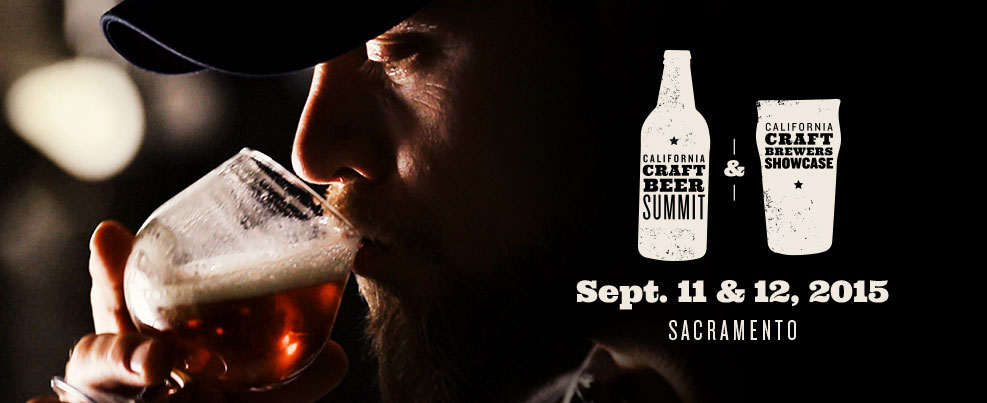
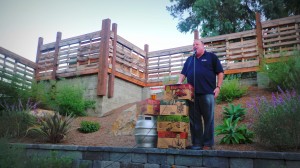
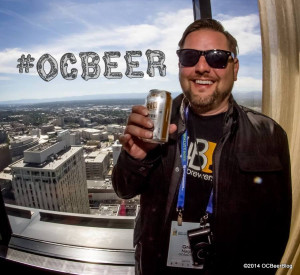
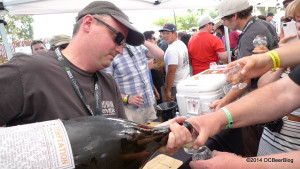
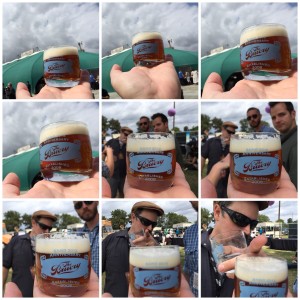
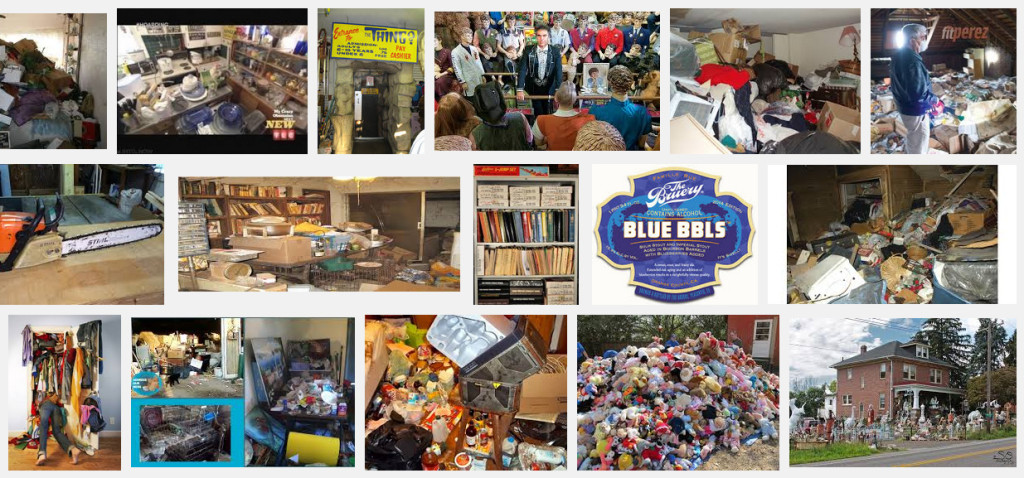
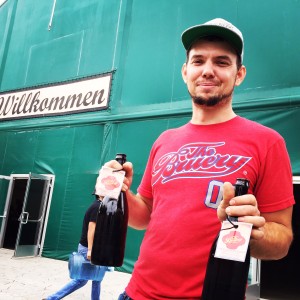
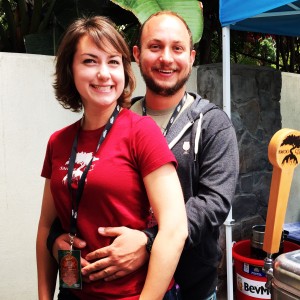
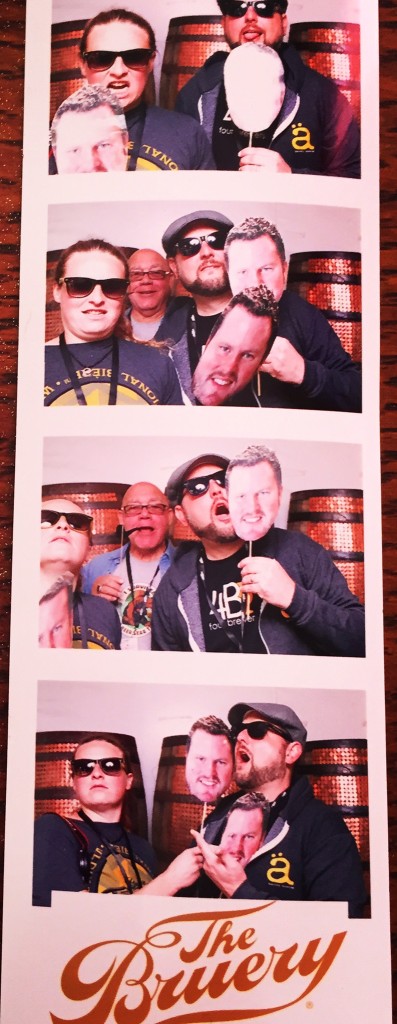
 1) Hitting my 1000’th Untappd check in at Beachwood BBQ & Brewing with the Hops of Brixton, poured by my favorite gal, the Beer Bird herself Catelyn Willig. The beer is a bold ESB shining with British cracker-like malts clashing with East Kent Golding hops. It’s one of my favorites at Beachwood and get it first. Extraordinary!
1) Hitting my 1000’th Untappd check in at Beachwood BBQ & Brewing with the Hops of Brixton, poured by my favorite gal, the Beer Bird herself Catelyn Willig. The beer is a bold ESB shining with British cracker-like malts clashing with East Kent Golding hops. It’s one of my favorites at Beachwood and get it first. Extraordinary! 2) Camping at the Firestone Winery and drinking one-off Barrelworks beers at Firestone Walker’s original brewhouse? This totally didn’t suck! One beer that stood out was a wine/beer blend called “Zin Skin” that poured with a huge fluffy three inch head; only to watch it disappear like a big bubble being popped. Pictured is galpal beer writer Erika Bolden snapping a shot of DBA while on the back of a flat bed in a grape field.
2) Camping at the Firestone Winery and drinking one-off Barrelworks beers at Firestone Walker’s original brewhouse? This totally didn’t suck! One beer that stood out was a wine/beer blend called “Zin Skin” that poured with a huge fluffy three inch head; only to watch it disappear like a big bubble being popped. Pictured is galpal beer writer Erika Bolden snapping a shot of DBA while on the back of a flat bed in a grape field.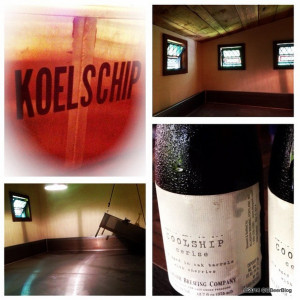 3) When you get invited into the Coolship room at Allagash Brewing in Portland, Maine, you go in. When you uncork a beer that was spontaneously fermented in there, that’s pretty damn spectacular. Arguably one of the most acidic beers I’ve had in recent memory, Coolship Cerise simultaneously melted my tooth enamel and caused “instaboner”. But was there sex in the coolship room? I’ll never tell.
3) When you get invited into the Coolship room at Allagash Brewing in Portland, Maine, you go in. When you uncork a beer that was spontaneously fermented in there, that’s pretty damn spectacular. Arguably one of the most acidic beers I’ve had in recent memory, Coolship Cerise simultaneously melted my tooth enamel and caused “instaboner”. But was there sex in the coolship room? I’ll never tell.
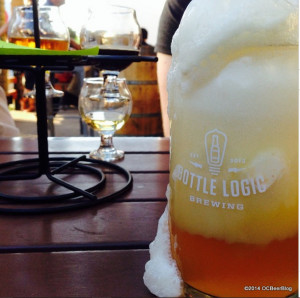

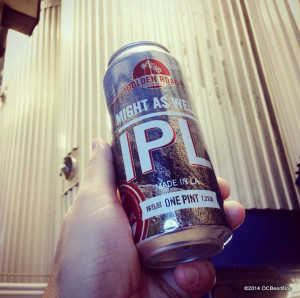 8) Taking an unreleased beer off of
8) Taking an unreleased beer off of 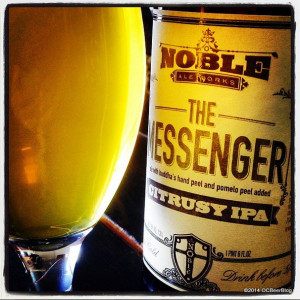 9) Of all the ways for a yet-to-be opened brewery to show off their skills, Three Weavers quickly won over my heart with this collaboration with Noble Ale Works. The Messenger was indeed a message in a bottle, saying “hey, I’m a citrusy IPA made with Buddha’s Hand fruit and other fun stuff.” I loved this beer, Noble, and Alex Nowell quite a bit.
9) Of all the ways for a yet-to-be opened brewery to show off their skills, Three Weavers quickly won over my heart with this collaboration with Noble Ale Works. The Messenger was indeed a message in a bottle, saying “hey, I’m a citrusy IPA made with Buddha’s Hand fruit and other fun stuff.” I loved this beer, Noble, and Alex Nowell quite a bit.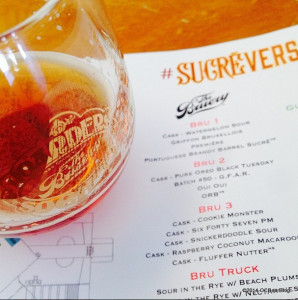
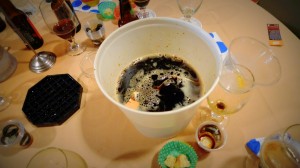
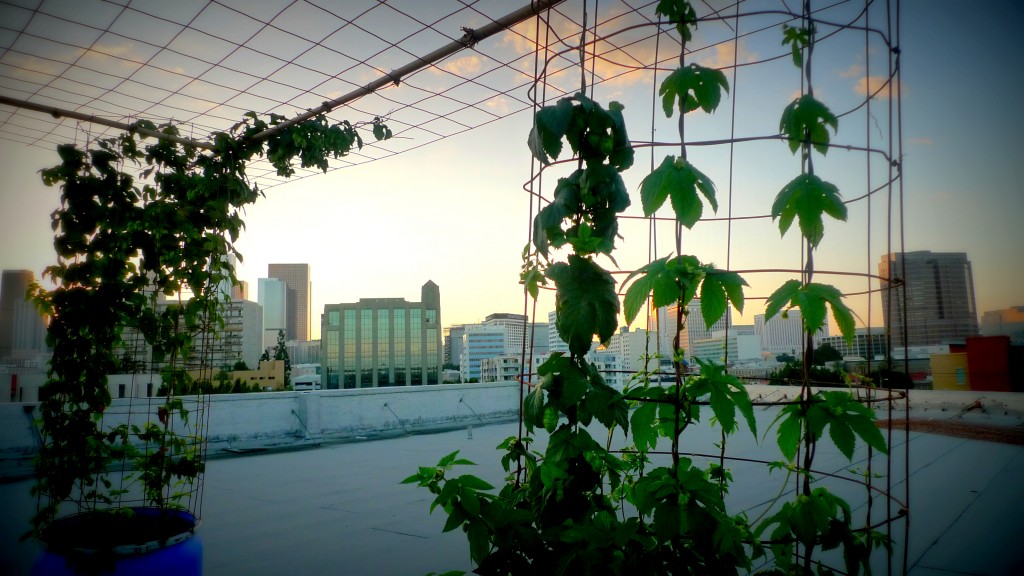
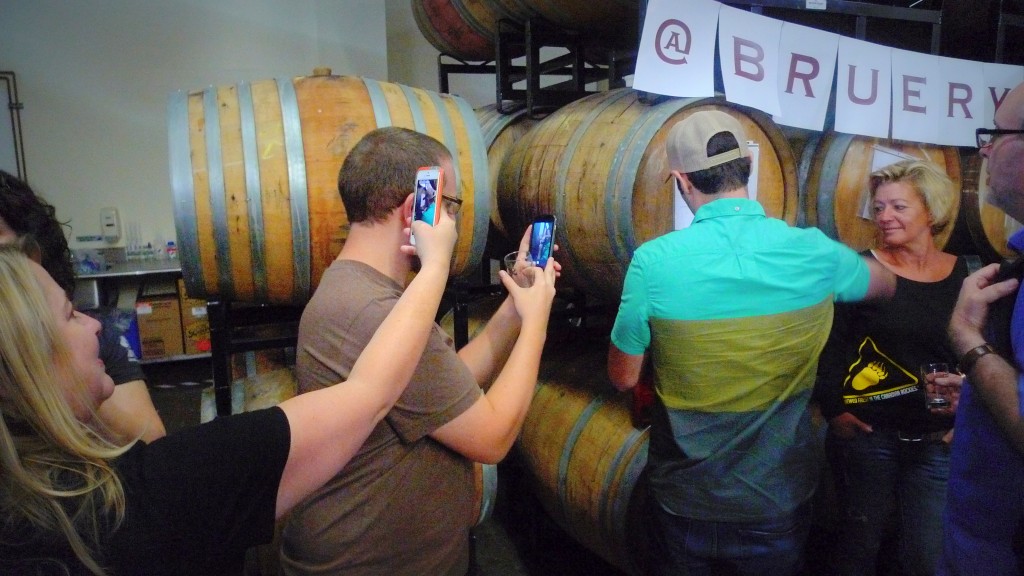

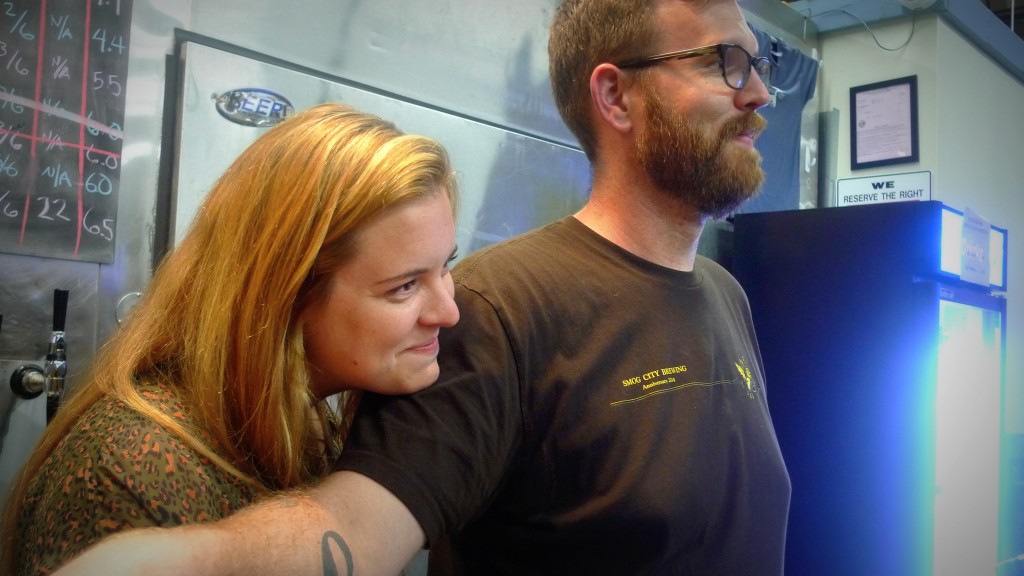
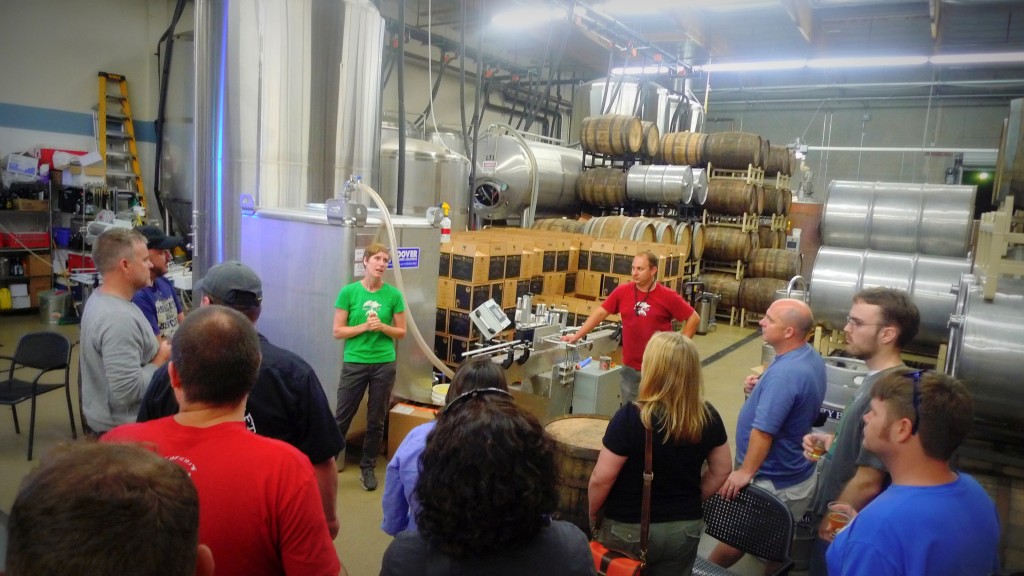
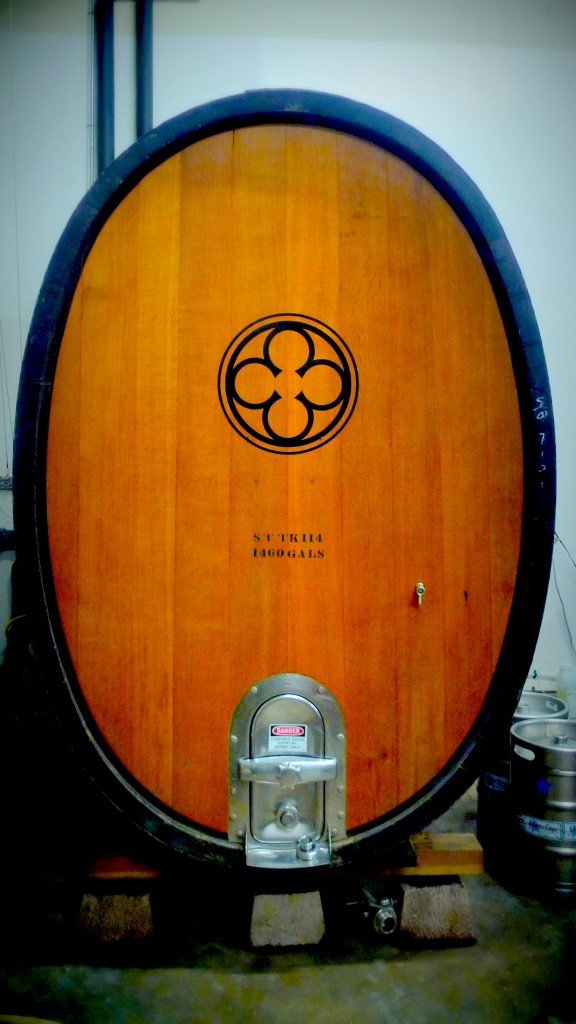
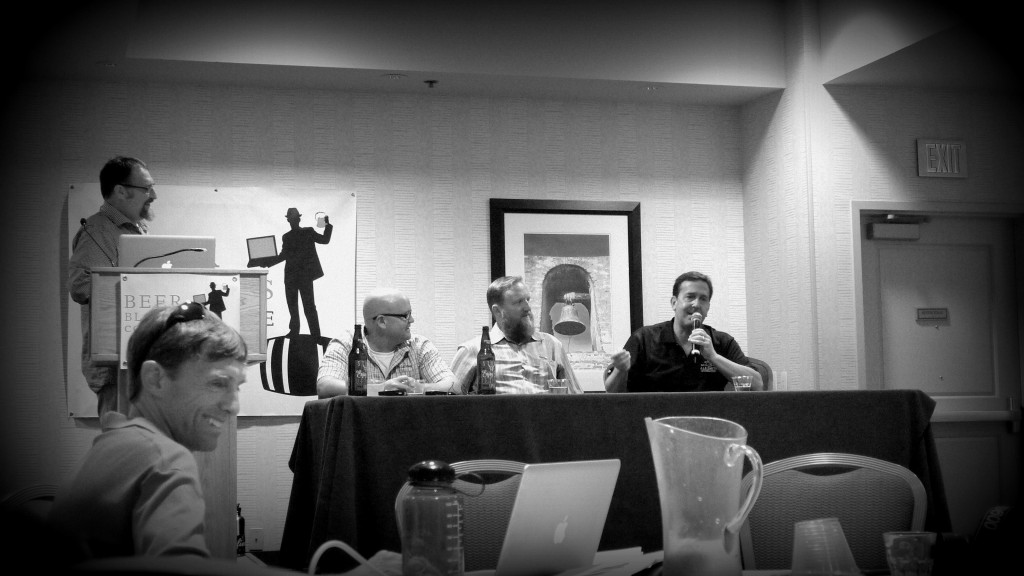
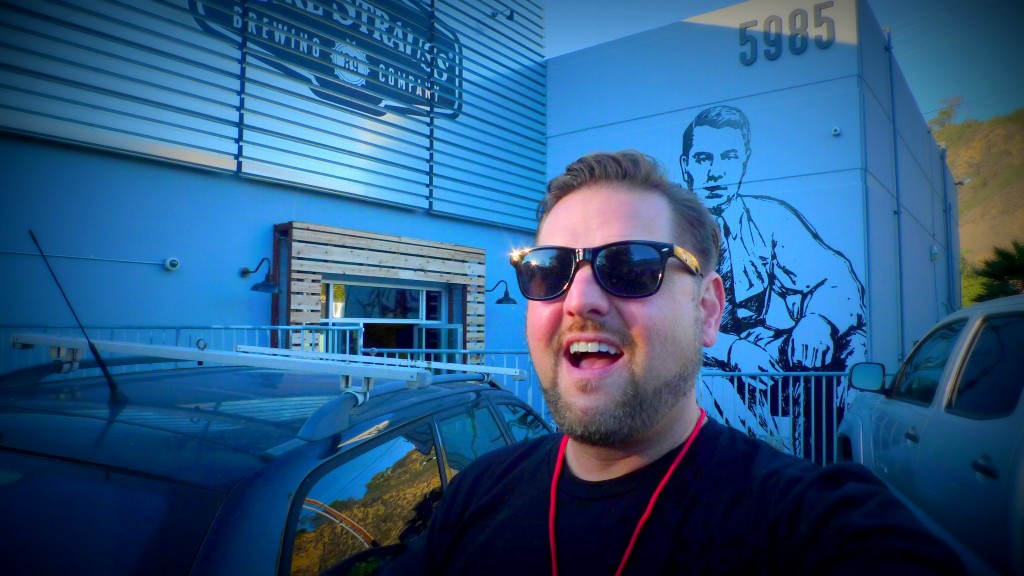
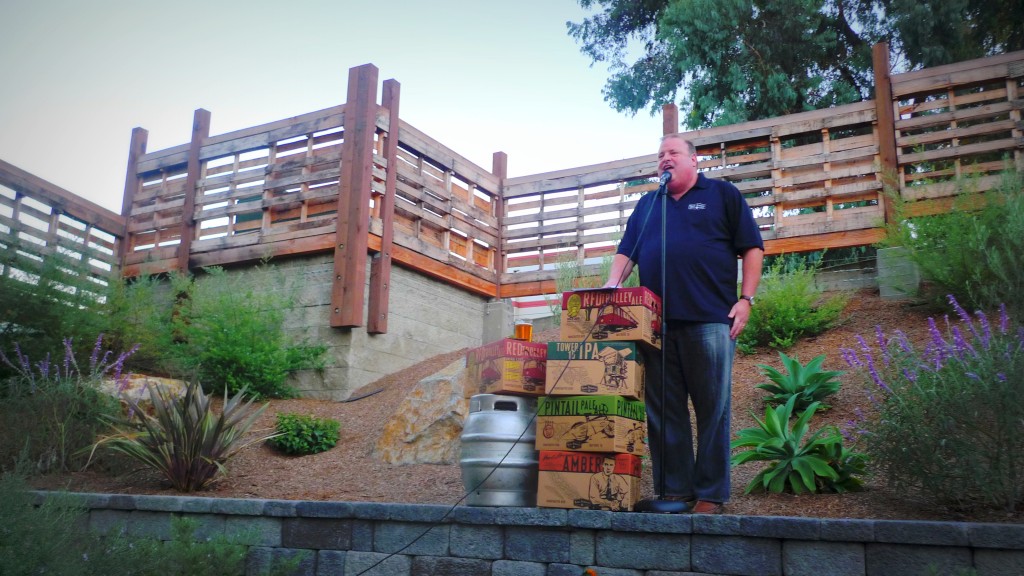
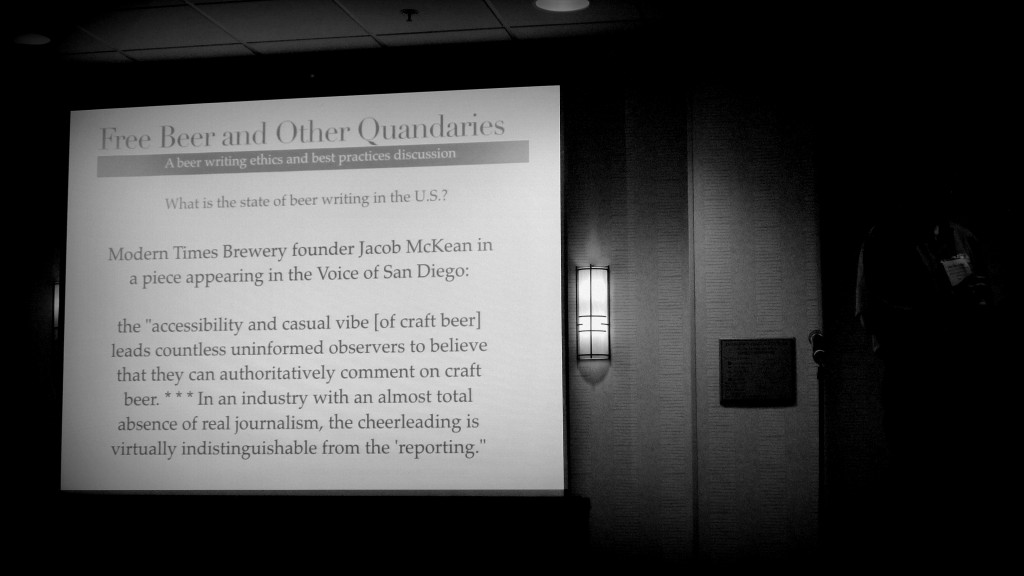
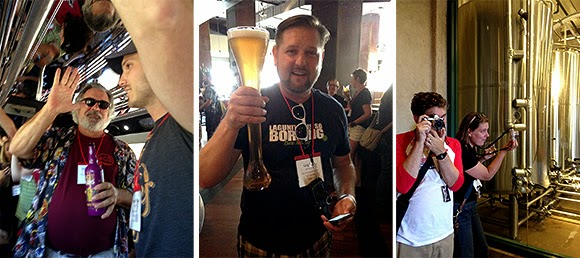
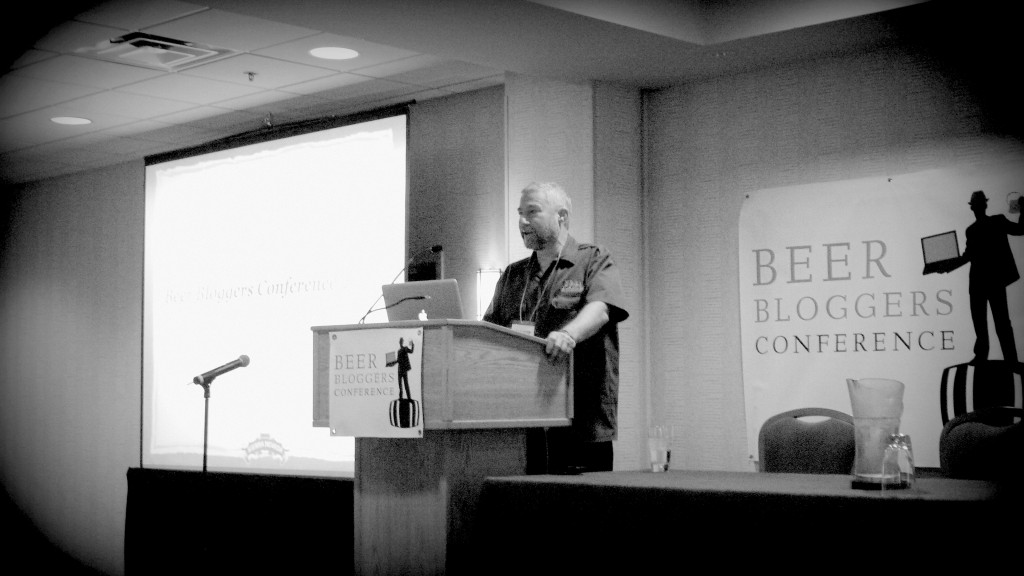
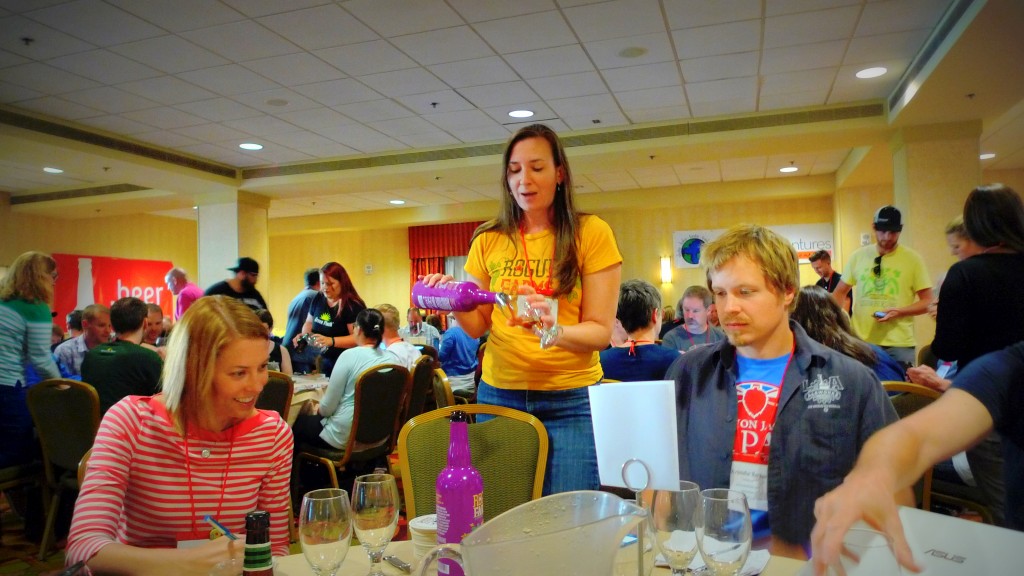
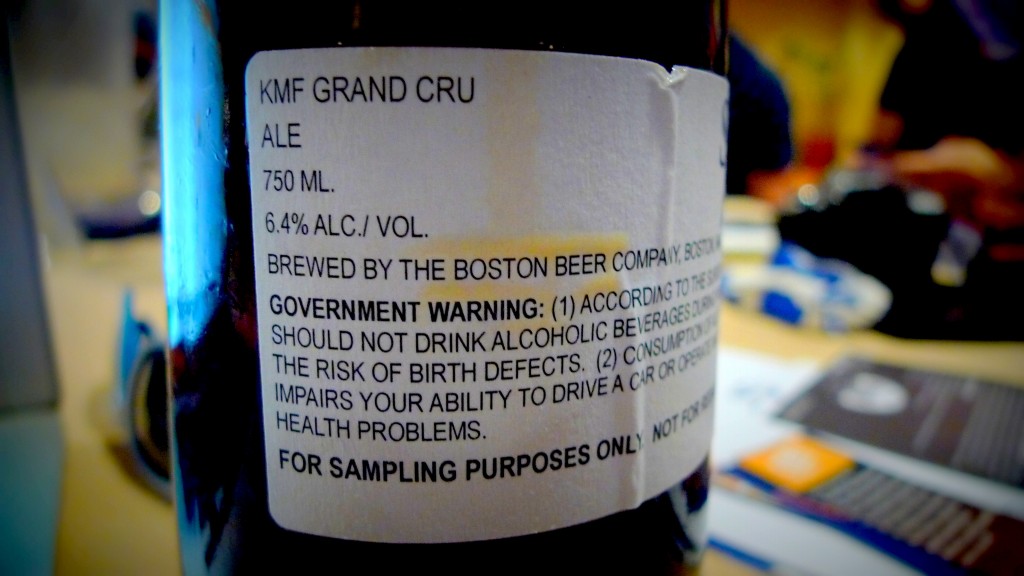
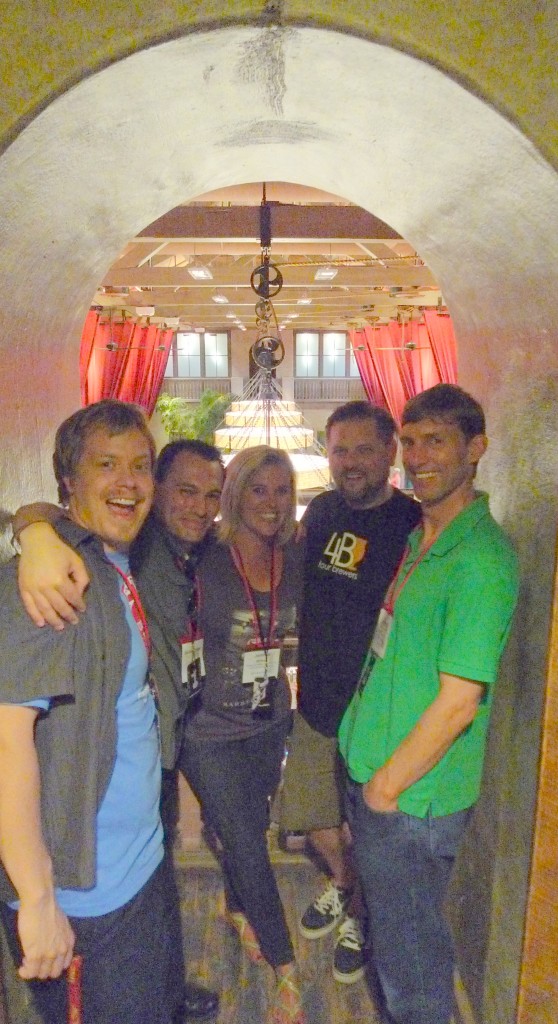
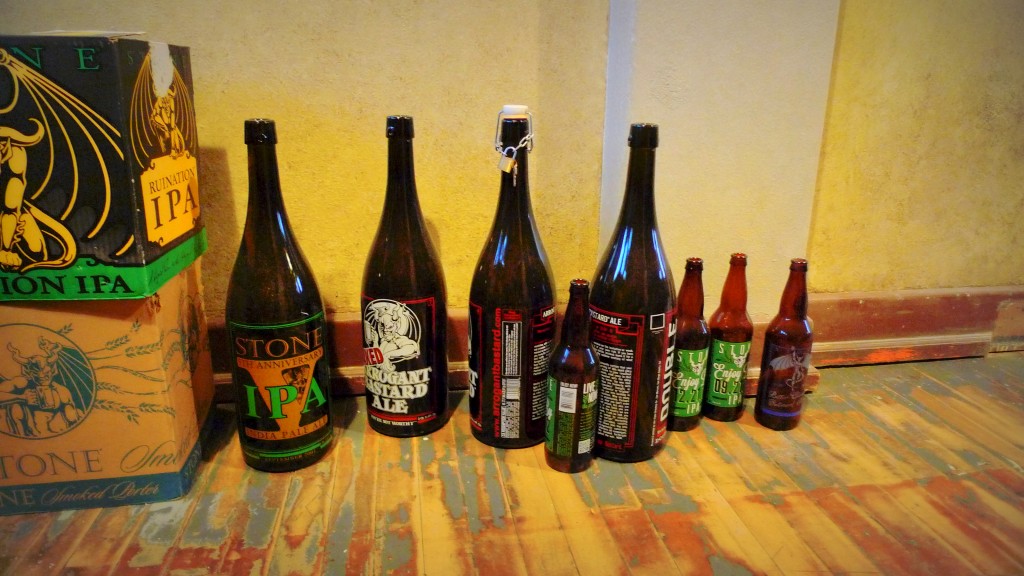















































































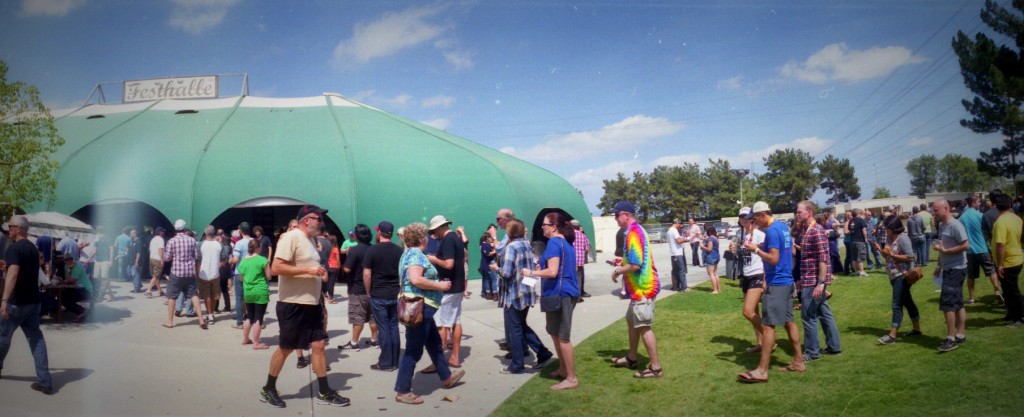
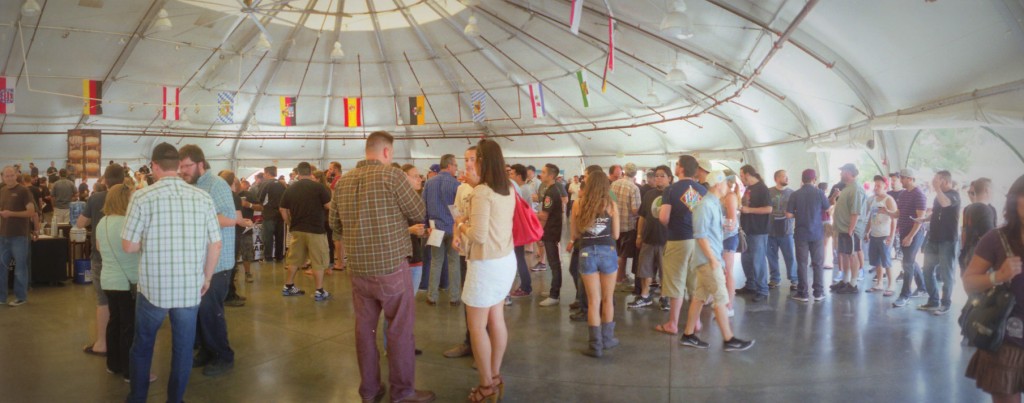
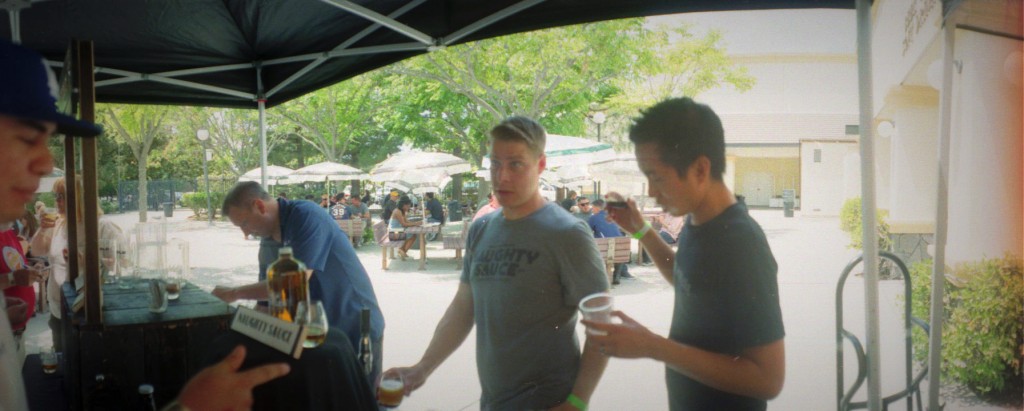
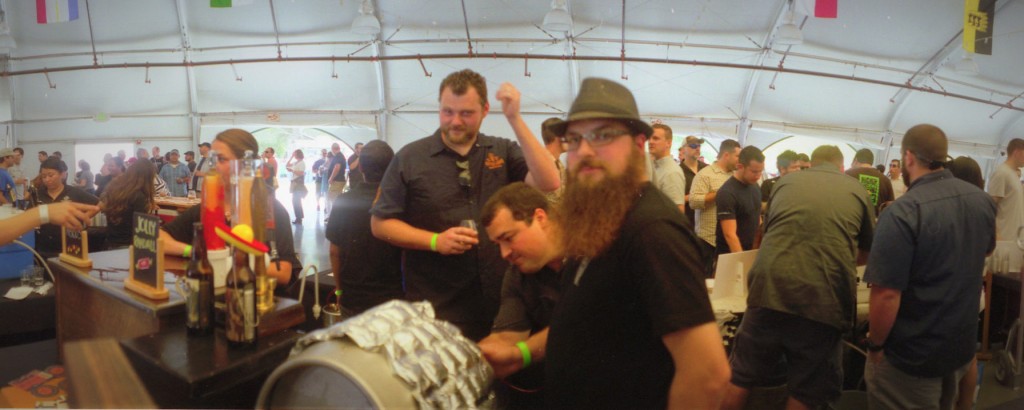
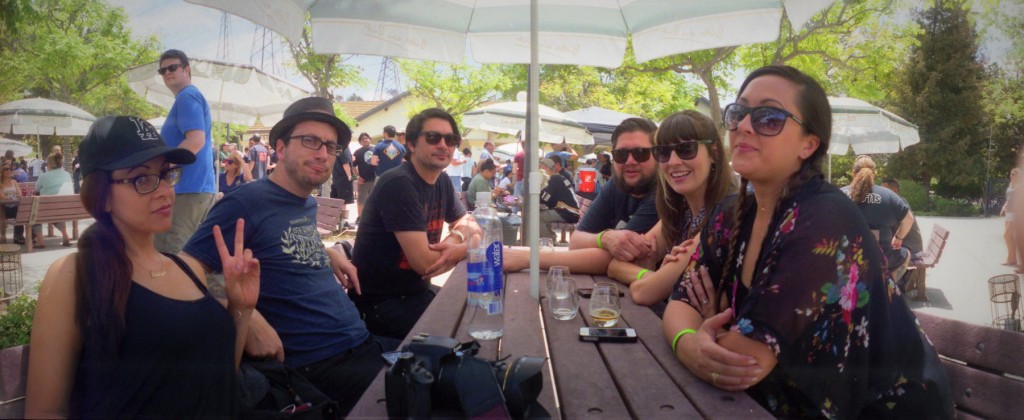
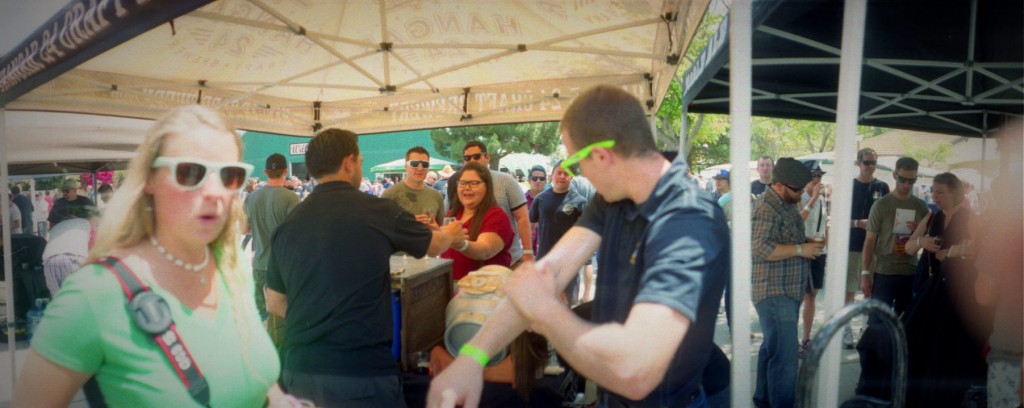
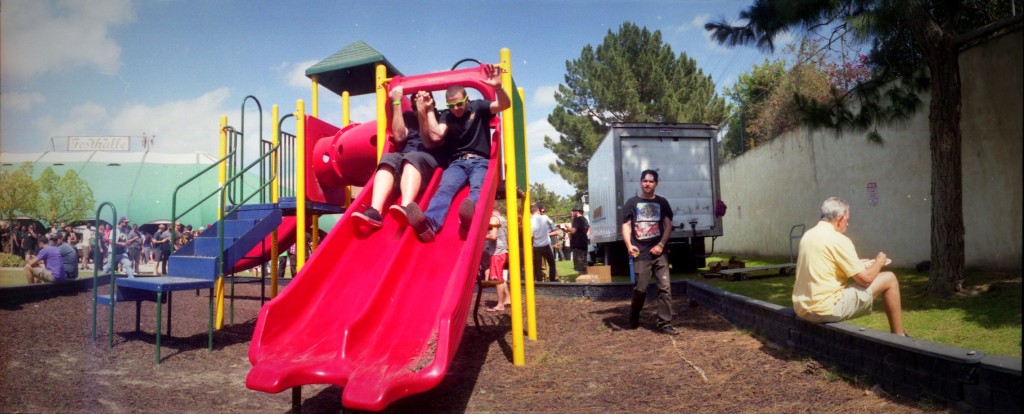
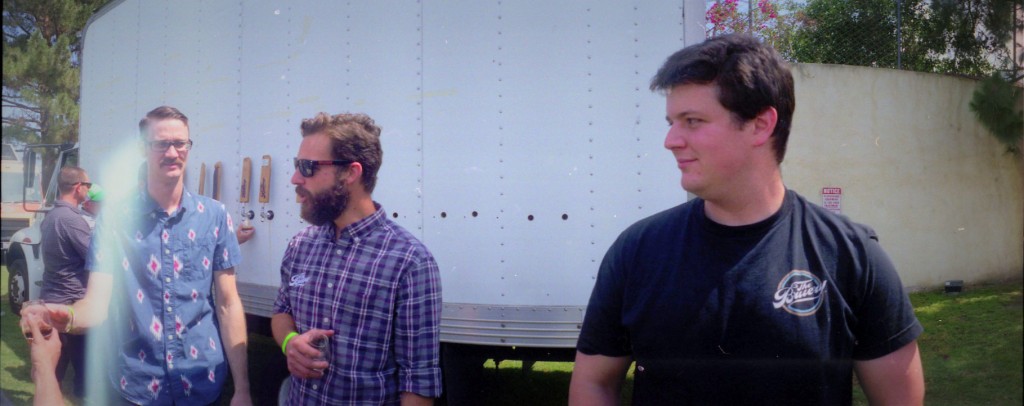
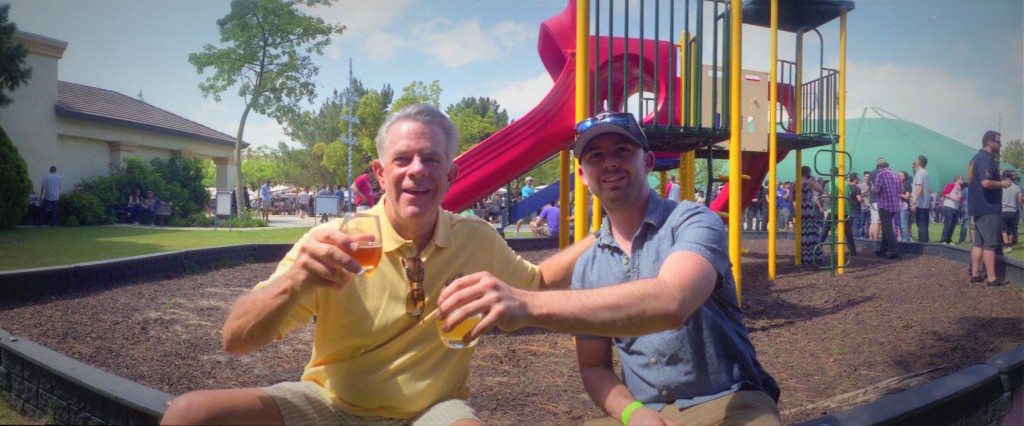
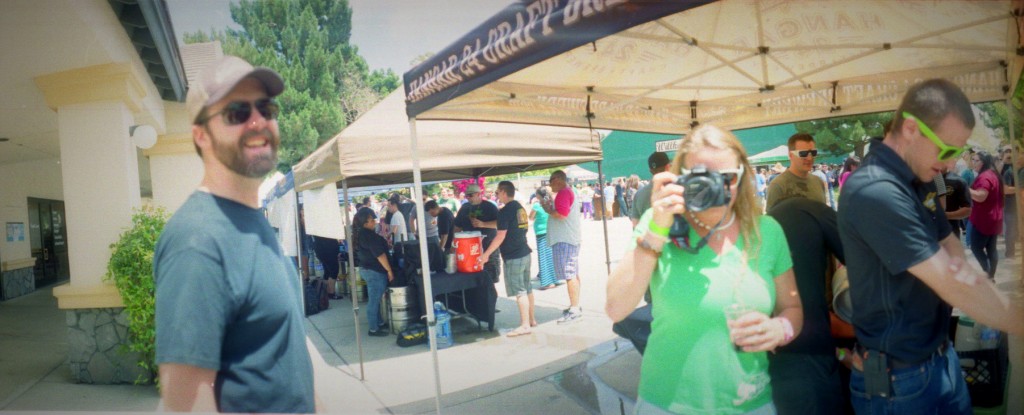
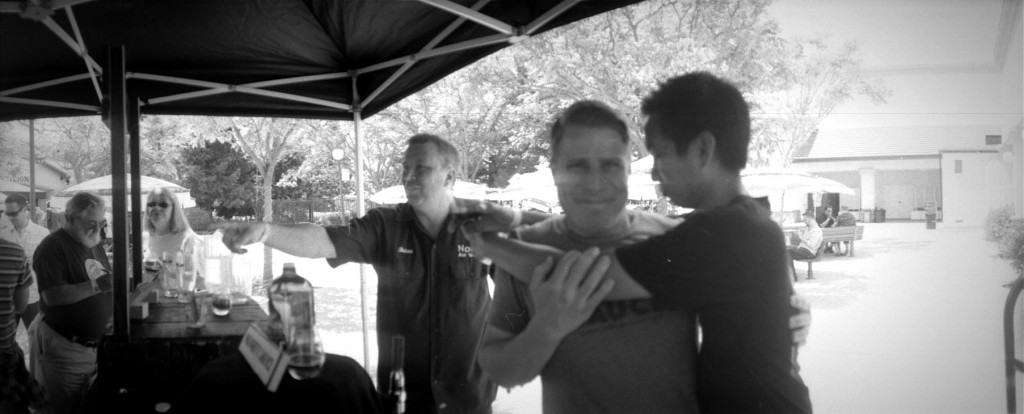
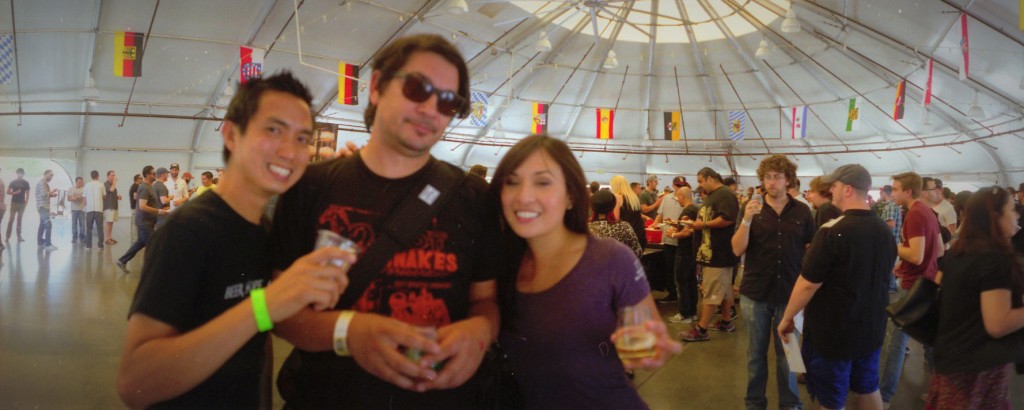
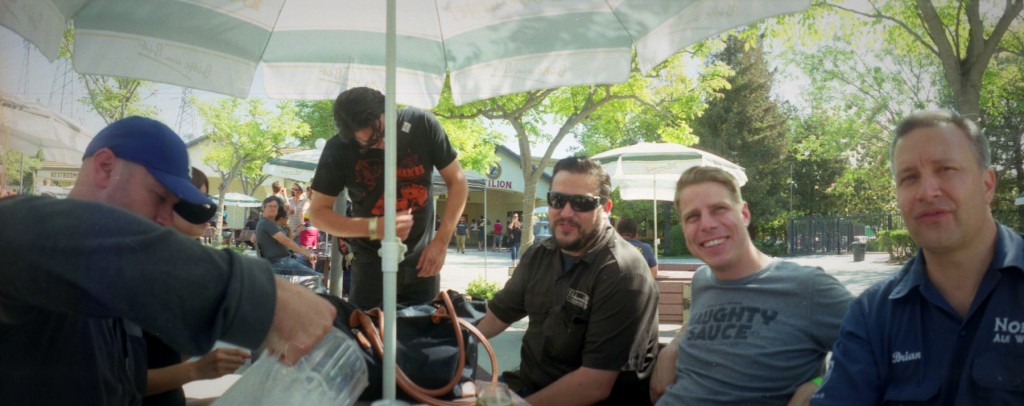
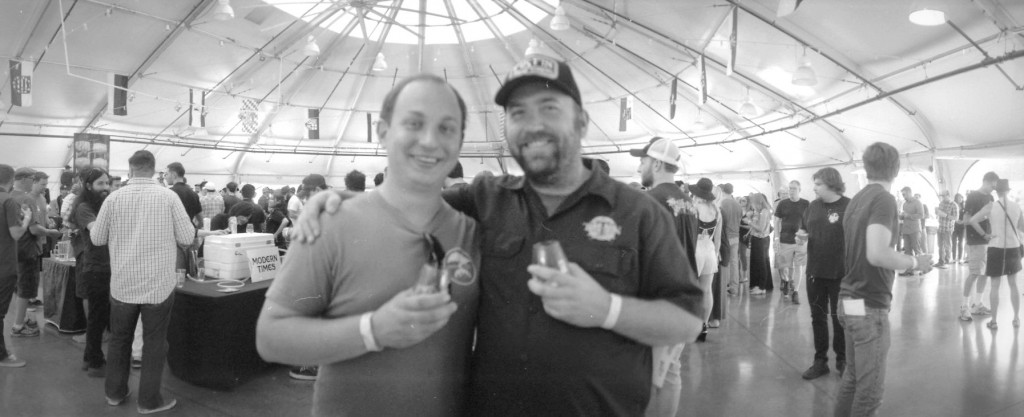
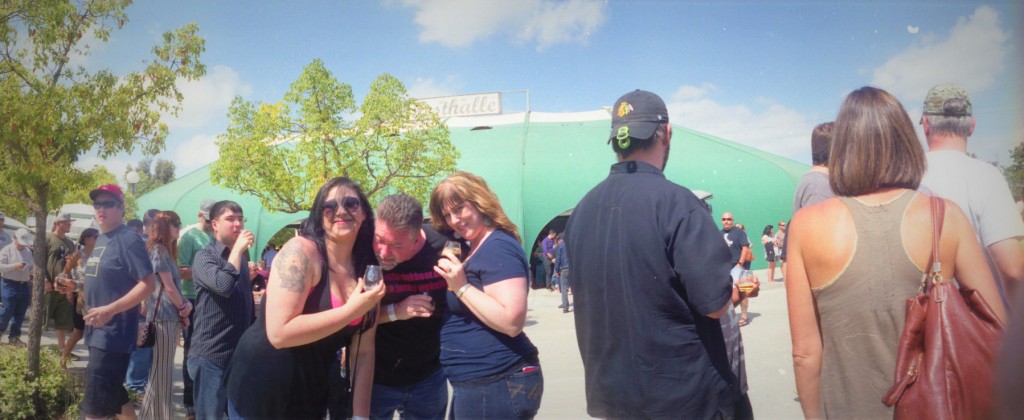
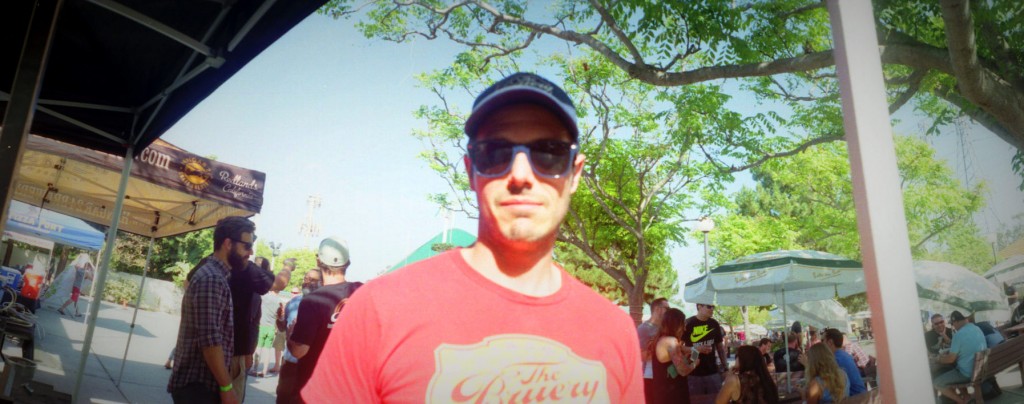
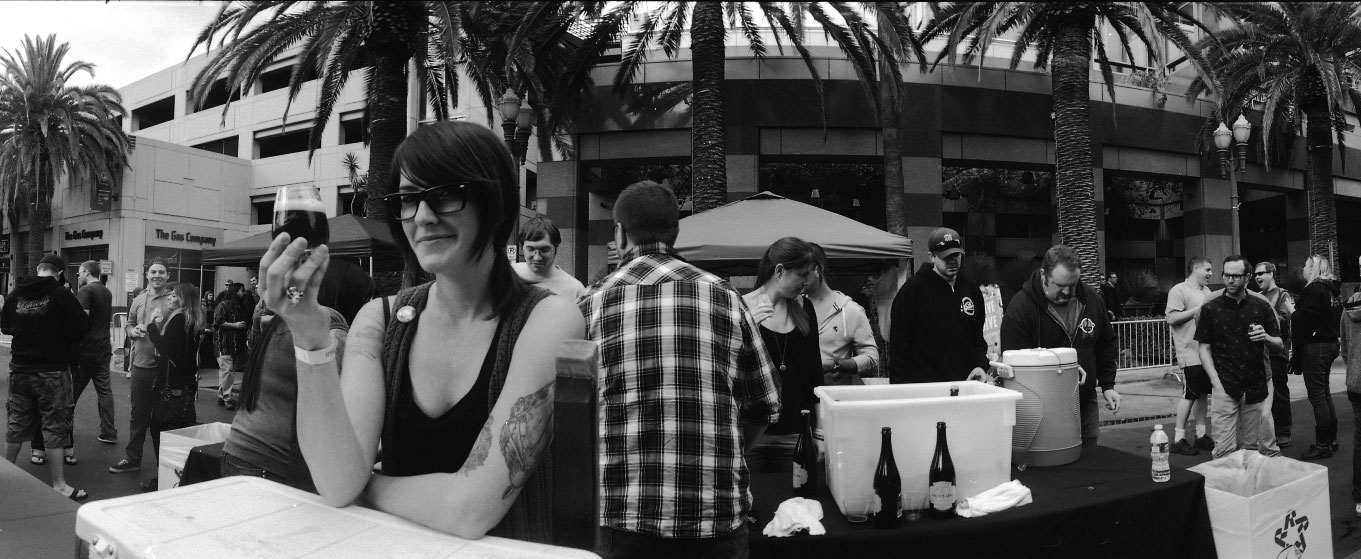
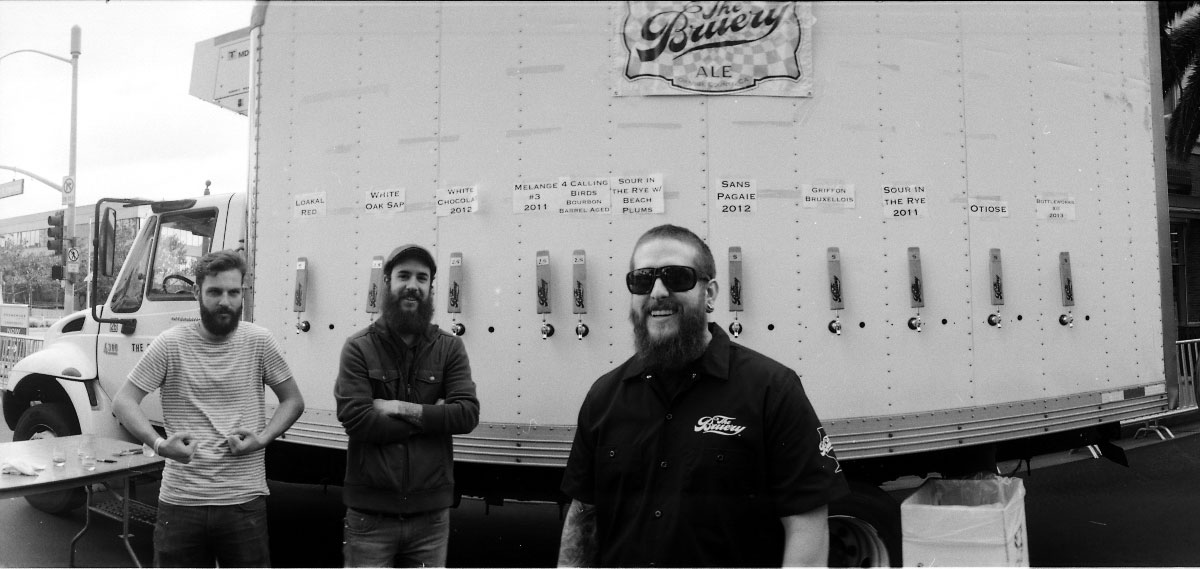

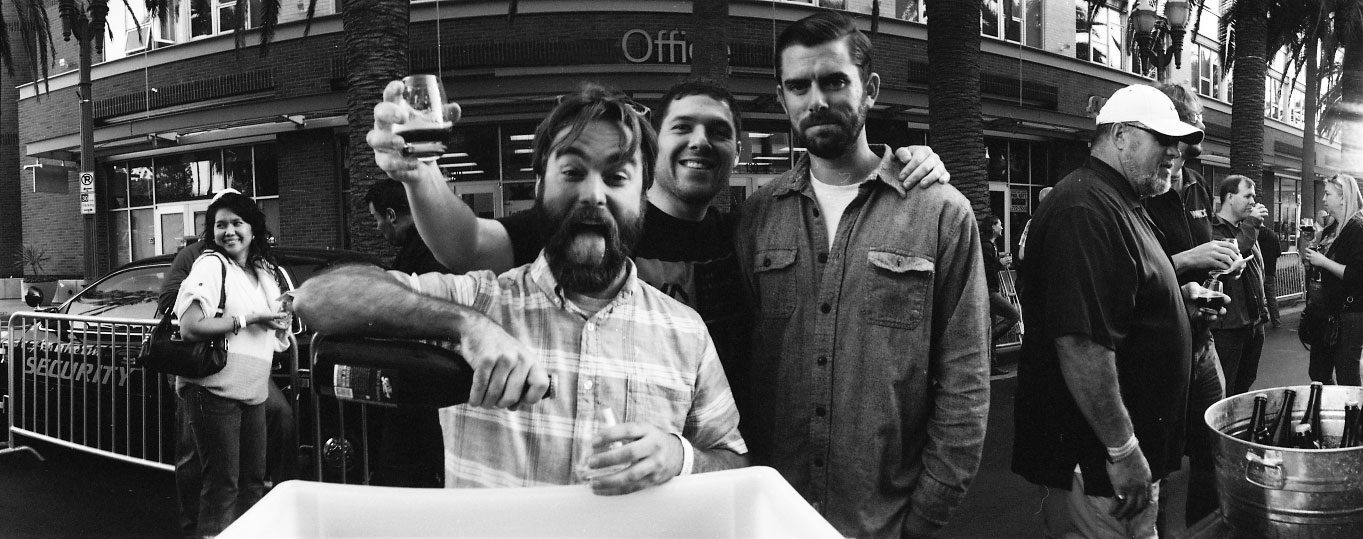




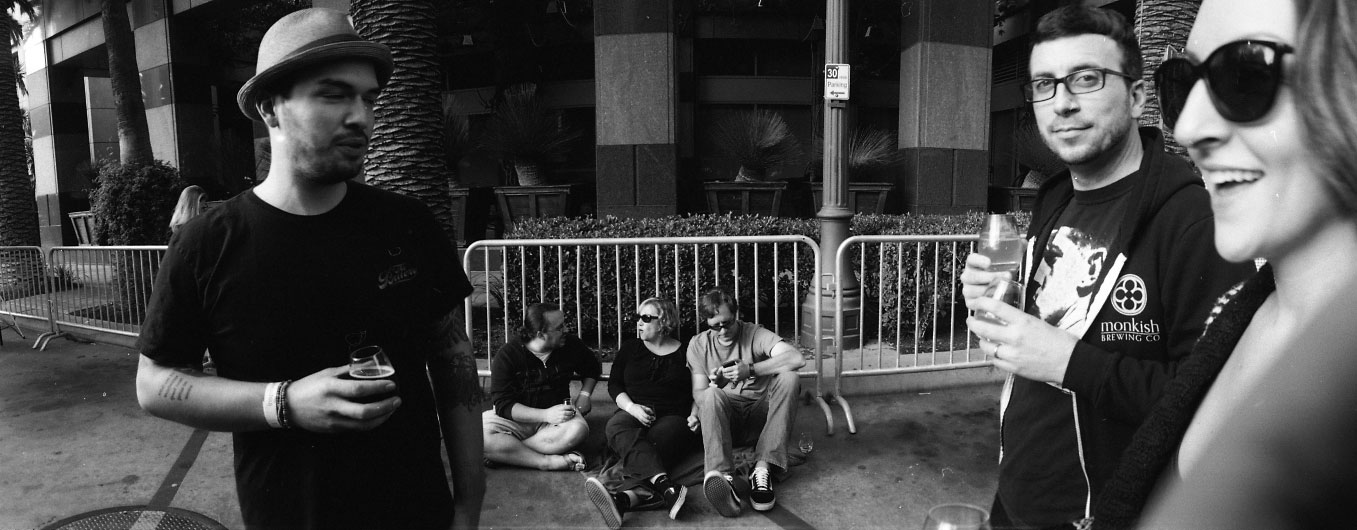
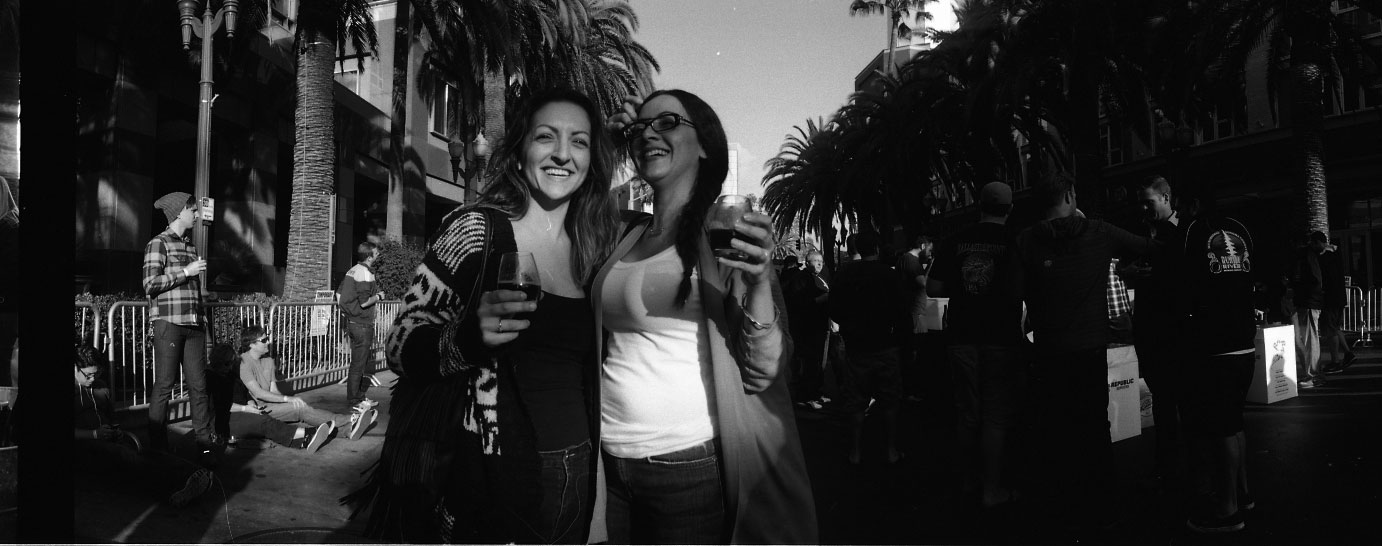

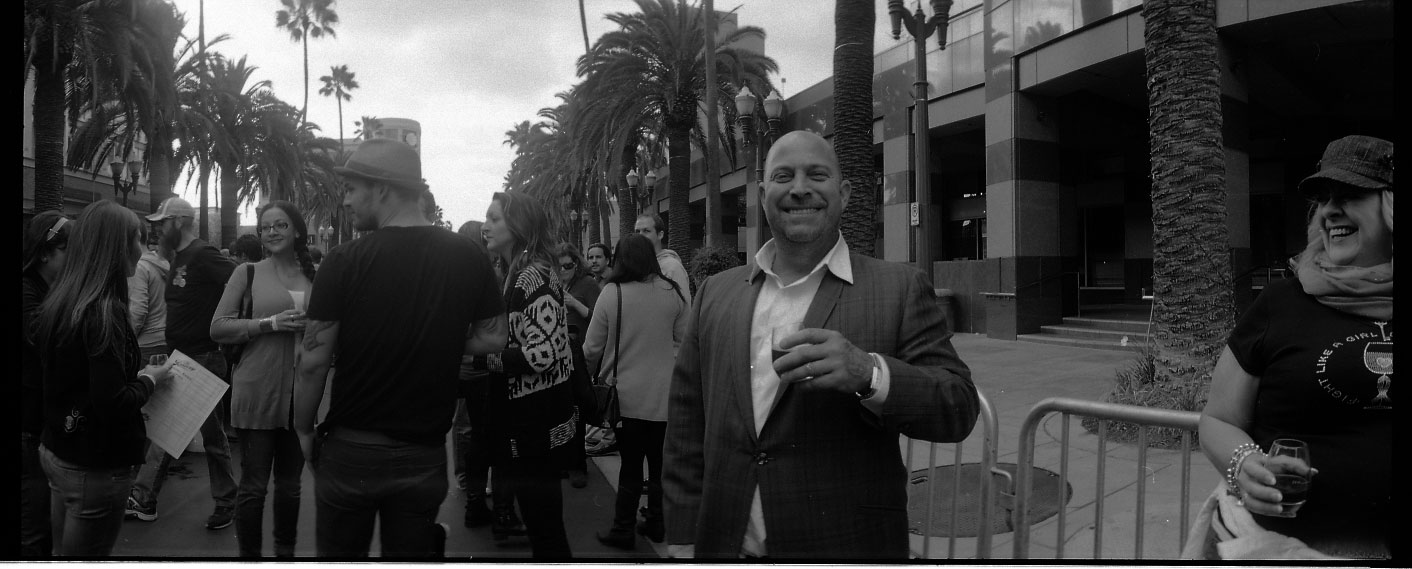
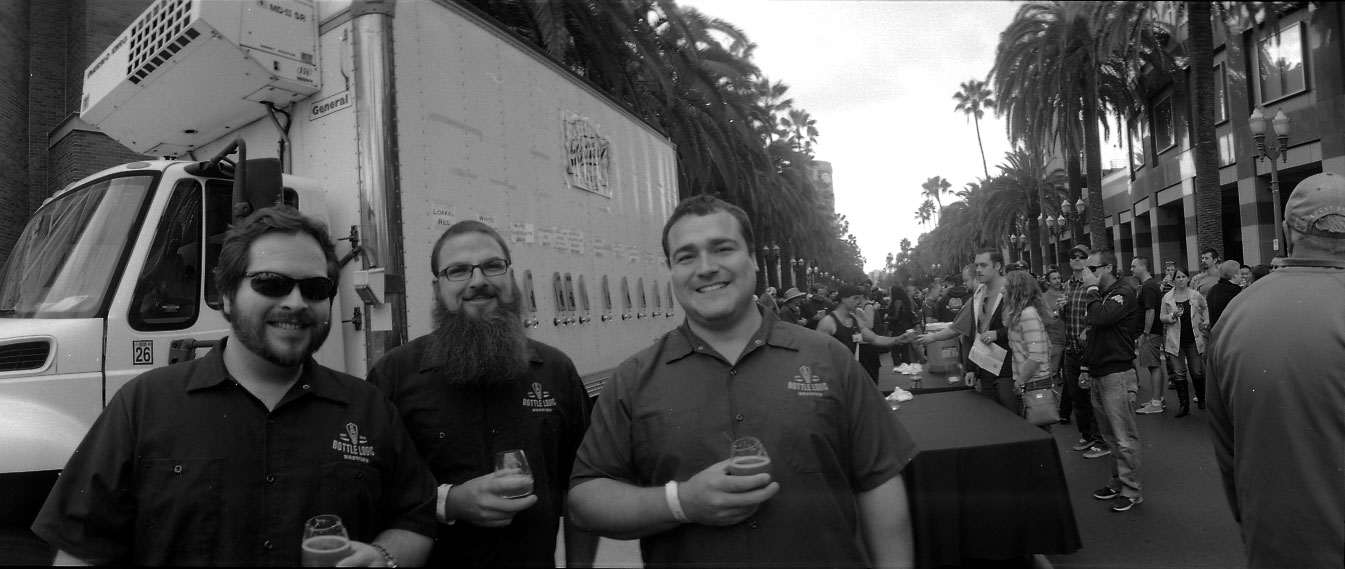


You must be logged in to post a comment.